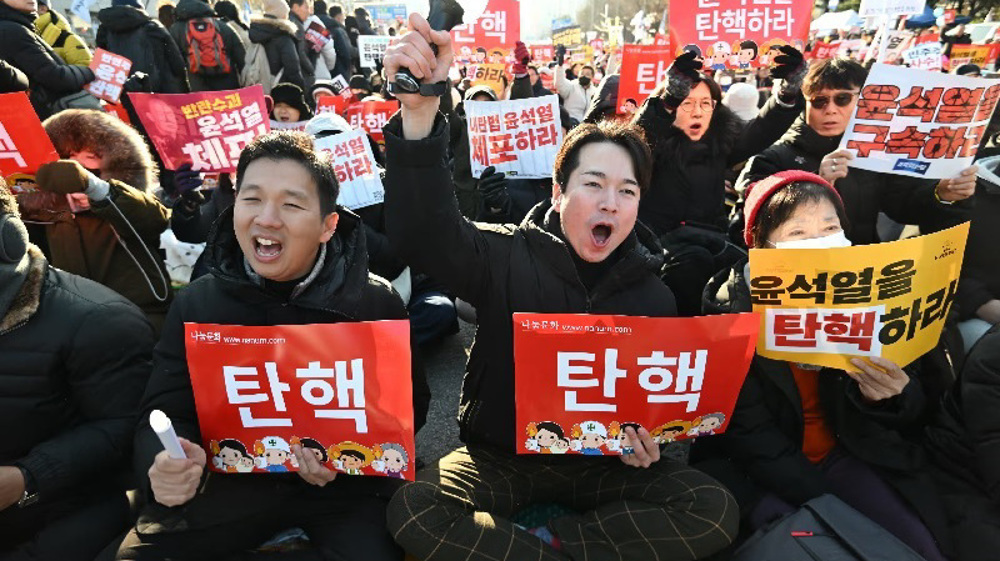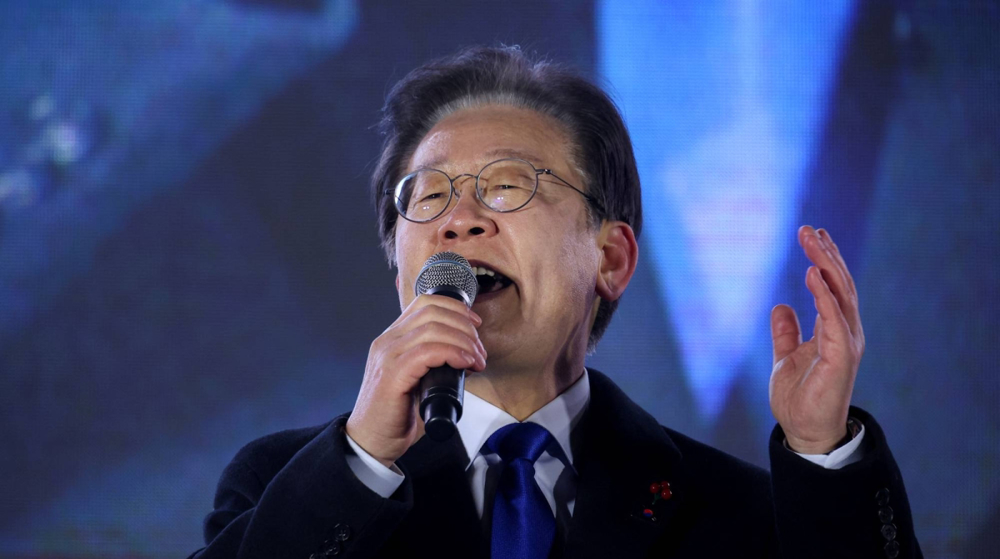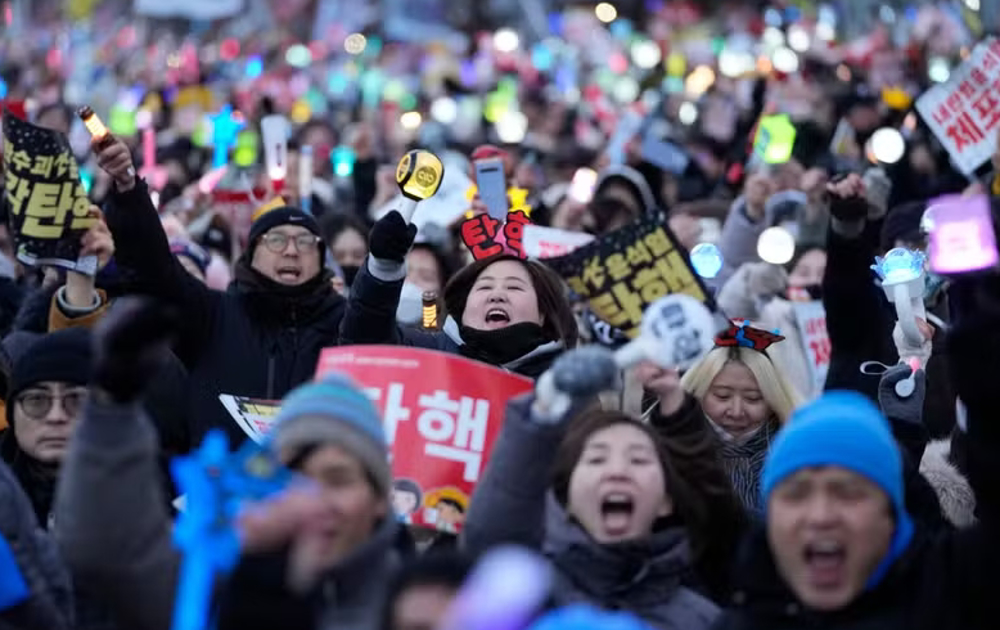North Korea delays Guam strike plan amid global calls for peace
Amid global calls for calm, North Korea’s leader has decided to halt a plan to launch missiles towards the US Pacific territory of Guam, warning, however, that his country will stay fire-ready while keeping a close eye on Washington’s actions.
The North’s official news agency said on Tuesday that Kim Jong-un informed the country’s military commanders that he would wait and monitor the actions of the US for the time being.
KCNA news agency said Kim made the decision after being briefed on the “plan for an enveloping fire at Guam” during an inspection on Monday of the Strategic Force command in charge of the nuclear-armed state’s missile units.
Kim said he would “watch a little more the foolish and stupid conduct of the Yankees” before executing any order.
If they “persist in their extremely dangerous reckless actions” on the Korean Peninsula, North Korea would then take action “as already declared,” he added.
North Korea said last week it was finalizing plans to launch four missiles into the waters near Guam.
The plan was announced after US President Donald Trump threatened to unleash “fire and fury” on North Korea. Trump has also said the US military is “locked and loaded” to deal with the North.

World urges calm
Meanwhile, world leaders continue to urge both sides to calm down and end the dispute peacefully.
On Tuesday, South Korea’s President Moon Jae-in, an advocate of dialog with the North, vowed that his government would do all in its power to prevent war on the Korean Peninsula, saying there will be no military action without Seoul’s approval.
“Military action on the Korean Peninsula can only be decided by South Korea and no one else can decide to take military action without the consent of South Korea,” said Moon in televised comments.
The South Korean leader urged both sides to stop threatening one another and pursue diplomatic solutions.
“The government, putting everything on the line, will block war by all means,” Moon said.
Japanese Prime Minister Shinzo Abe also said he and the US president had agreed during a phone conversation on Tuesday that their top priority would be to do whatever they could to stop North Korea from launching its missiles.

“Through a firm partnership between Japan and the US and cooperating with China, Russia and the international community we agreed that our priority was to work to ensure that North Korea doesn't launch more missiles,” Abe said.
For his part, Trump said he would stand by Washington’s regional allies.
“President Trump reaffirmed that the United States stands ready to defend and respond to any threat or actions taken by North Korea against the United States or its allies, South Korea and Japan,” the White House said in a statement.
On Tuesday, China and Russia urged the US and North Korea to exercise restraint and refrain from provocative actions.
Chinese Foreign Ministry spokeswoman Hua Chunying expressed hope that all sides could put out the flames, not add oil to the fire, with their words and actions.
Russian foreign ministry spokeswoman Maria Zakharova made similar remarks, saying Washington and Pyongyang are edging closer to conflict with their harsh rhetoric while paying little regard to the potential consequences of such confrontation.
“We [the Russian foreign ministry] have already said that the situation is on the brink, but despite this, we hear the rhetoric from Pyongyang, and the statements that come out every day from Washington,” she said.
The official added, “Russia and China have initiated a program to overcome this crisis, there must be a double freezing. The Americans and South Korea freeze their military exercises, which are provocative, and North Korea freezes the tests they are conducting, tests which have been condemned by the UN.”
European Union’s foreign policy chief has urged the sides to seek a “peaceful, not military” solution to the crisis.
“At such a critical juncture, the European Union supports diplomatic work with our partners aimed at the de-escalation of the situation and achieving the complete, verifiable and irreversible denuclearization of the Korean Peninsula through peaceful, not military, means,” Federica Mogherini said in a statement.
The statement was issued after a meeting of a key EU panel which agreed the bloc would reach out to the two Koreas, the United States, China, Russia and Japan.
“There is an urgent need for a de-escalation of tensions,” Mogherini emphasized.
Tensions on the Korean Peninsula escalated in July, when Pyongyang twice successfully tested an intercontinental ballistic missile (ICBM) capable of targeting the US mainland.
World nations took a unified stand against Pyongyang over the missile test, urging the country not to pursue a weapons development program.
Pyongyang, however, says it needs its weapons as a deterrent against US expansionism and to defend its nation in the face of any US aggression.
VIDEO | Yemenis praise the military for its successful operations against Israel
VIDEO | Israel continues to bomb Gaza homes
VIDEO | An insider's view of the country: Meybod City in Yazd
‘All wars have rules. All of those rules have been broken’ by Israel
VIDEO | Report flags India’s violation of rights of Rohingya detainees
Turkey's foreign minister meets Syria's de facto leader in Damascus
VIDEO | US Syria plots
'Next to impossible' to rescue patients from Gaza's Kamal Adwan Hospital: Director














 This makes it easy to access the Press TV website
This makes it easy to access the Press TV website